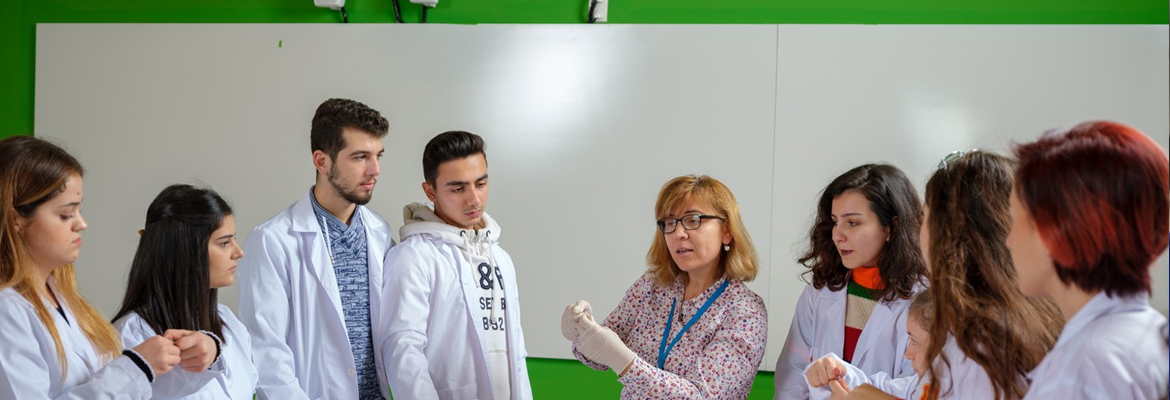Working Places
Physicians are the most important parts of the health system, providing services to protect the health of the society in a sustainable way, to achieve health-oriented goals and to increase the quality of life. Physicians can work in public and university hospitals, private hospitals, medical centers, family health centers, rehabilitation centers, addiction treatment centers, community mental health centers, workplaces, schools, prisons, mother-child health and family planning centers, dispensaries, community health centers, private clinics, care centers for the elderly and disabled people, nursing homes and home care centers. They can also work by opening their own clinics. Physicians who want to become academics can continue their education after graduation and work in universities.
About the Courses
Dentistry Undergraduate Program offers undergraduate education and training that aims to make students equipped with theoretical knowledge, practical and professional skills with its wide and comprehensive curriculum. In addition to basic medical education, the Dentistry program covers the issues related to the diagnosis and treatment of diseases related to the mouth and oral tissues. In dentistry education, training of individuals who comply with ethical rules, following current scientific developments and adopting community service as a duty are prioritized.
In the first two years of vocational education, students take basic medicine and dentistry courses as well as pre-clinical vocational courses that improve their professional skills.
In order for students to graduate with more practice, their clinical studies, which were previously 2 years, have been increased to 3 years. Students who continue their education in the clinic from the 3rd year have more clinical practice opportunities than before in dentistry, where practical experience is very important. 4th and 5th grades are the classes where mainly clinical applications are provided, as well as dentistry vocational courses and medicine courses.
The following courses are offered in the dentistry undergraduate program: Dental Anatomy and Physiology, History of Dentistry, Prosthetic Dentistry I, Restorative Dentistry I, Endodontics I, Head and Neck Anatomy, Anatomy II, Dental Anesthesia, Pharmacology, Pathology, Prosthetic Dentistry II, Restorative Dentistry II, Endodontics II, Oral and Maxillofacial Radiology I, Periodontology I, Orthodontics I, Pedodontics I, Oral and Maxillofacial Surgery I, Occlusion and Temporamandibular Joint, Prosthetic Dentistry III, Restorative Dentistry III, Preventive Dentistry Oral Diseases , Internal Medicine, Orthodontics II, Oral and Maxillofacial Surgery II, Periodontology II, Otolaryngology, Psychology, Neurology, Dermatology, Ophthalmology, General Surgery, First Aid and Emergency Aid, Forensic Medicine, Implantology, Community Oral and Dental Health, Ethics and Deantology in Dentistry.
Internships in Oral and Maxillofacial Radiology, Periodontology, Prosthetic Dentistry, Restorative Dentistry, Endodontics, Oral and Maxillofacial Surgery, Pedodontics and Orthodontics are completed in the department.
In addition to the main courses, it is also aimed to provide an interdisciplinary education with various elective courses to be offered throughout the undergraduate education. Students studying in this department complete the compulsory internship of their five-year education. Graduates who successfully complete all the courses in the education plan, including clinical internship applications, are given the title of Dentist.
